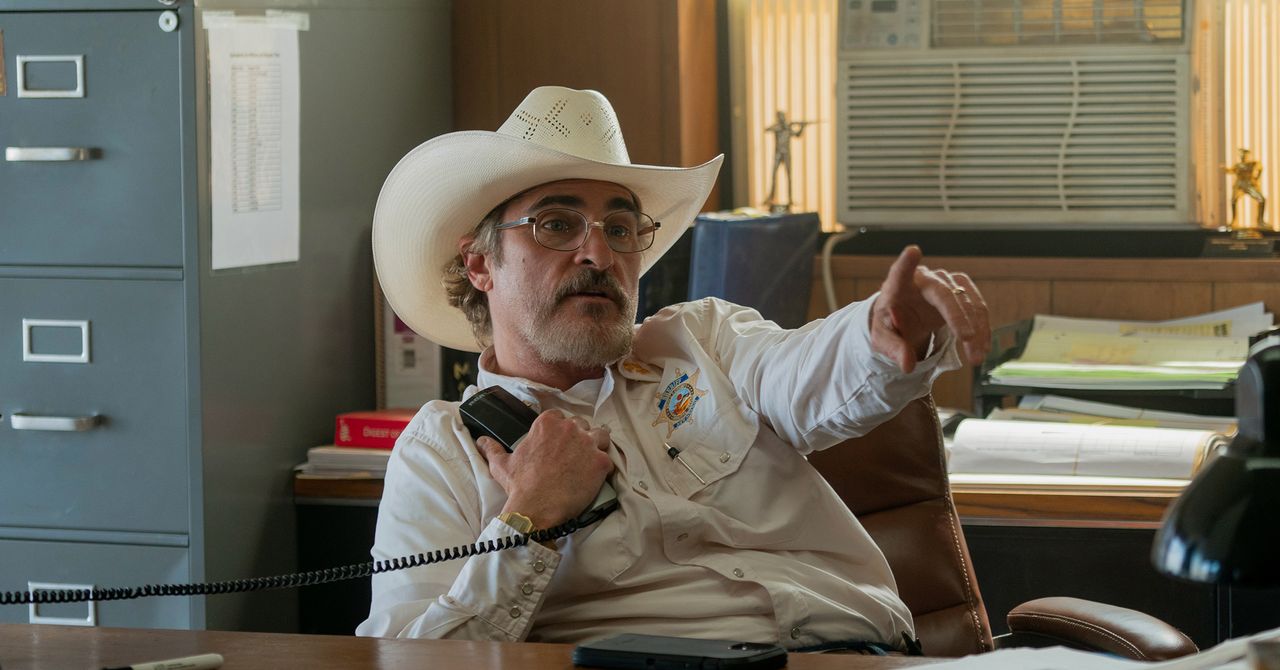Eddington Also examine conspiracy theories and the podcasters and YouTubers they distributed online in exchange for influence and profit. Phoenix’s character will often return home to hear some secluded voiceless demands through the speakers of an abandoned laptop. Later, his wife (Emma Stone) or mother-in-law (Deirdre O’Connell) will rebuild the fringe theories about breakfast.
Again, Aster built this dark corner of his world from the real source material.
“One thing was inspired by someone I heard on the street in New York with a microphone,” he says. “I wrote it down later. Others were drawn from different corners of the internet. ‘
Aster’s general purpose with Eddington was to convey the overwhelming feeling of today, while still making a compelling film.
“It was important to get so many voices in the cacophony and present as many corners of the internet as possible – to make a coherent story about the incoherent miasma we live in,” he says. “I wish we could have shown more, but we did as much as possible without becoming distracting or no longer supporting the story.”
Ai creates an “era of total distrust”
Eddington Can mainly be a film about how social media breaks our brains, but there is another technological innovation that Aster was careful to represent in his film: Artificial Intelligence. The film starts with a plan to build an AI training data center at the edge of the city, a plotting point that appears through the story several times (also in the election plot, with Phoenix’s character fighting against the shady business interests behind the new facility).
“It’s mostly peripheral,” says Aster, “but to me it’s the heart of the film. It is a film about people living through Covid, and navigating a crisis. Meanwhile, just outside the city, another crisis is cooked. ‘
In a recent interview with Letterboxd, the director said it was “obviously too late” to stop AI. But when printed on the pros and cons of artificial intelligence, Aster describes it with a mixture of wonder and fear.
“I’m awe for what it can do, but I’m also very upset about it,” he tells me. ‘We live in an era of total distrust. These kinds of images can lead to the end of video or audio vouchers. ‘
As a director, he is concerned that the ability to create transcendent art is “flattened” by generative AI instruments, while at the same time admitting that it opens the film industry to more people than ever. “It’s democratized in an exciting way,” he says. “There are more possibilities now, but something is going away too.”
In its own very Ari Aster Road, the twisted thoughts are behind some of the most disturbing footage of the 21st century (from the unexpected beheading that kicks off Hereditary to the literal penis sample in Beau is afraid) Miss the era of more ominous AI images.
“In the beginning, when these systems hallucinated and created strange images – 12 fingers, bizarre things – it was more interesting to me,” he says. “The more polished, the less exciting and more worrying it becomes.”
About that end …
WARNING: Spoilers ahead for the end of Eddington.
Although it sometimes feels like a Coen brothers Western on amphetamines, Eddington is impressively grounded during his nearly two-and-a-half hour time-to-the-end. After Phoenix’s character killed Pascal’s and then the local BLM protesters for the murder frame, a plane is flying full of real anti-fascist terrorists in the city and starting to blow it all up.
